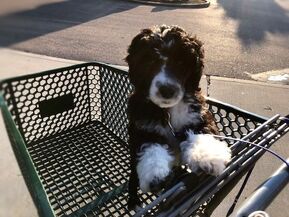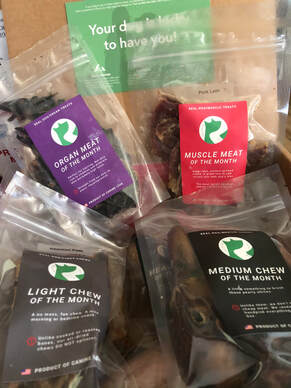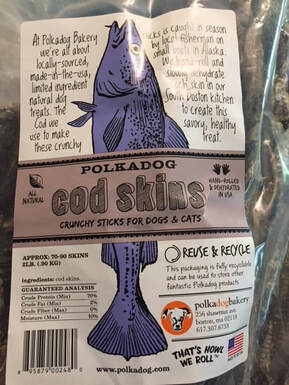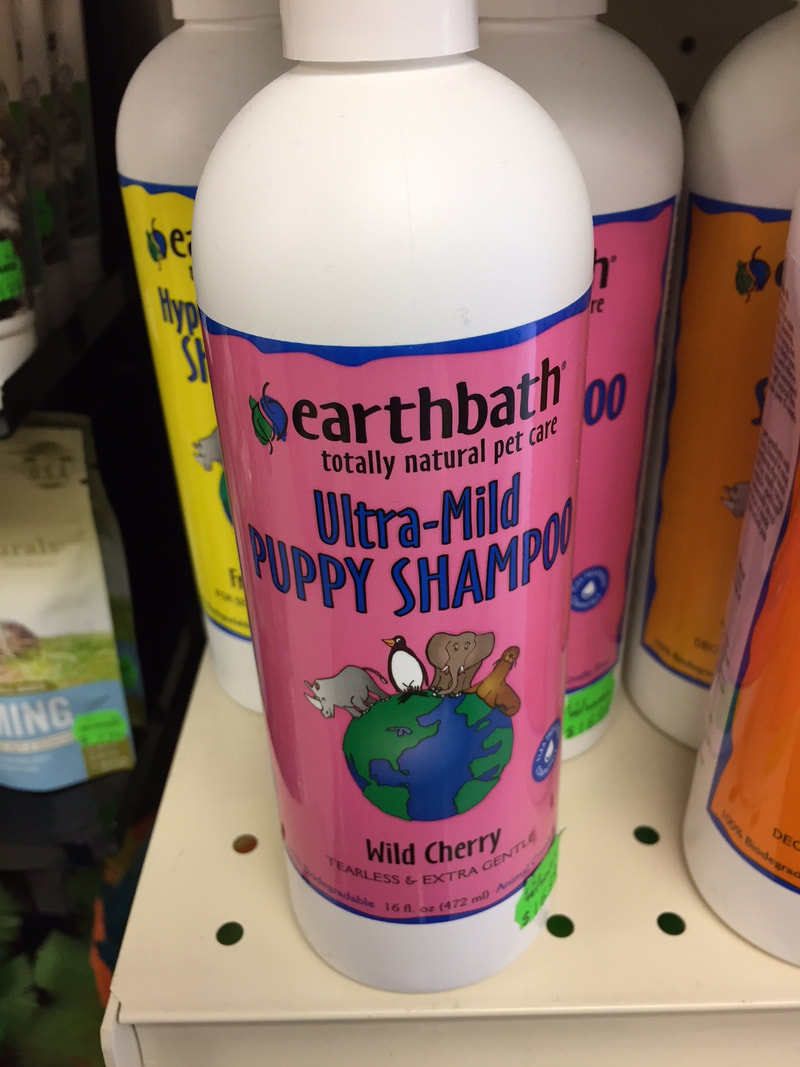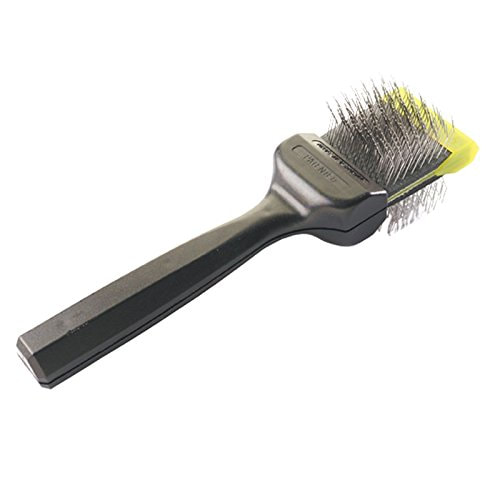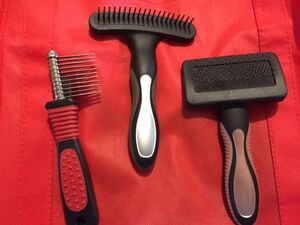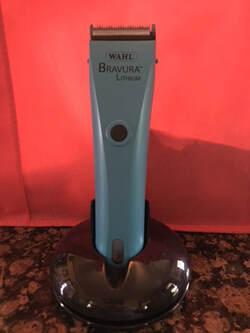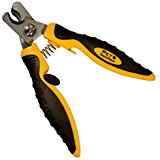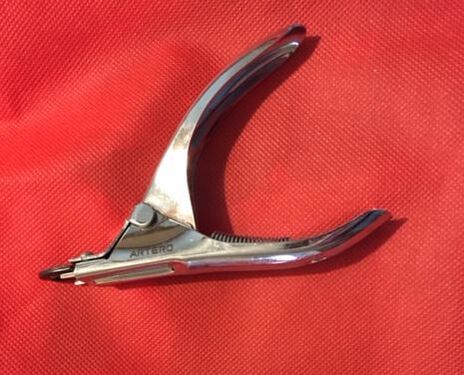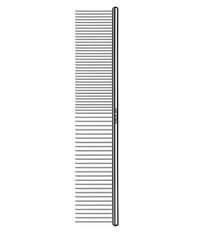It's surprising how much stuff you actually need when you bring a puppy home. The puppy pack that will go home with you will contain a 4 ft leash and a puppy and adult collar. You will also go home with a plush toy, a tug toy, a small mat, a clicker, social interaction information, information on pet insurance, vaccination protocols, a booklet on proper exercise for a puppy, and samples of food. The leash and collars will come from Lupine and have a lifetime guarantee -- if your puppy chews either, go here to get a replacement (you will need to take a photo of the leash or collar).
TRAINING:
We strongly encourage you to check out and visit training facilities BEFORE you bring home a puppy. Under "Training Your Dog" we list a number of facilities that are located in the New England area. If you are outside this area, and let us know your general vicinity, we can post to a list to see if other PWDCA members have experience with training facilities near you.
You can also think about online training. One programs designed for owners of young puppies is OneMind Dog's Puppy program that can be accessed via computer or phone. Ian Dunbar also offers a subscription course on Training Your Puppy that can be helpful. There is also a 30 day free course offered through Pupford by George Zak (https://pupford.com/30-day-perfect-pup-with-zak-george/) and then you can continue further with a paid subscription to additional training if you so desire. Jane Killion of Puppy Culture offers a $100 online course that is designed for those of you bringing a puppy into your home now or shortly.
CRATES, BEDS, & OTHER NECESSITIES:
You will need to invest in a crate that will help you make it through housebreaking the puppy, several chew toys that will be durable for the hard-mouthed PWD, metal food and water bowls, brushes, shampoo, and, if you choose, an X-pen. We also recommend a floor bed and a raised bed as a place to send your dog when guests come over, when preparing meals, and when you want the puppy to be quiet but out with you. All of these things, in addition to food, can be purchased via Amazon or Chewy.com. Scroll down for an extensive list of what you will need.
TRAINING TREATS:
Initially your puppy may be very happy to work for kibble. But at some point, kibble is going to lose its value and then you are going to need to up your game in terms of training rewards. The biggest mistake people make is being "cheap" with their rewards -- make sure you have lots and lots of treats and lots of different types of treats for your training sessions. You can buy turkey hotdogs and chop them up into small pieces or string cheese and cut it into small circles and then cut those in quarters -- these are "low end" treats and can be used to teach easy things. When teaching harder tricks, you'll need higher value foods like roast beef ends cut up, chicken breast cut up, or commercial treats from pet stores. One option is to use a service like Real Dog which will provide you with a variety of muscle meats, organ meats, and seafood meats in a monthly box delivered to your home. We have been very pleased with the quality of these treats and they are extremely high value so your dog will become incredibly attentive to try to earn one of these items. We are an affiliate so using us as a referral gets you an extra package of treats! Just give them our affiliate URL for your extra pack when you place your order: https://real.dog/topsailpwds . Remember to subtract the amount of treats you use in training from the daily feed you provide your dog so that you don't create a fat puppy! Make sure you try a variety of treats out to see what your puppy likes.
Puppy Crate
Adult Crate (for females, you will need the medium or intermediate sized-crate; for males you will need the intermediate or large crate)
Slicker Brush*
Grooming Rake
Stainless Steel Comb*
Detangler Brush
Shampoo: Puppy and Adult
Nail Clippers
Dremel for Nails (in lieu of clippers)
Bravura Wahl Cordless Grooming Clippers
X-pen (plastic) or X-pen (metal)
Raised Bed (we recommend the very durable Kuranda beds)
Metal Bowls
Kongs
Puzzle Feeder
Puzzle Ball
* These are musts!
TRAINING:
We strongly encourage you to check out and visit training facilities BEFORE you bring home a puppy. Under "Training Your Dog" we list a number of facilities that are located in the New England area. If you are outside this area, and let us know your general vicinity, we can post to a list to see if other PWDCA members have experience with training facilities near you.
You can also think about online training. One programs designed for owners of young puppies is OneMind Dog's Puppy program that can be accessed via computer or phone. Ian Dunbar also offers a subscription course on Training Your Puppy that can be helpful. There is also a 30 day free course offered through Pupford by George Zak (https://pupford.com/30-day-perfect-pup-with-zak-george/) and then you can continue further with a paid subscription to additional training if you so desire. Jane Killion of Puppy Culture offers a $100 online course that is designed for those of you bringing a puppy into your home now or shortly.
CRATES, BEDS, & OTHER NECESSITIES:
You will need to invest in a crate that will help you make it through housebreaking the puppy, several chew toys that will be durable for the hard-mouthed PWD, metal food and water bowls, brushes, shampoo, and, if you choose, an X-pen. We also recommend a floor bed and a raised bed as a place to send your dog when guests come over, when preparing meals, and when you want the puppy to be quiet but out with you. All of these things, in addition to food, can be purchased via Amazon or Chewy.com. Scroll down for an extensive list of what you will need.
TRAINING TREATS:
Initially your puppy may be very happy to work for kibble. But at some point, kibble is going to lose its value and then you are going to need to up your game in terms of training rewards. The biggest mistake people make is being "cheap" with their rewards -- make sure you have lots and lots of treats and lots of different types of treats for your training sessions. You can buy turkey hotdogs and chop them up into small pieces or string cheese and cut it into small circles and then cut those in quarters -- these are "low end" treats and can be used to teach easy things. When teaching harder tricks, you'll need higher value foods like roast beef ends cut up, chicken breast cut up, or commercial treats from pet stores. One option is to use a service like Real Dog which will provide you with a variety of muscle meats, organ meats, and seafood meats in a monthly box delivered to your home. We have been very pleased with the quality of these treats and they are extremely high value so your dog will become incredibly attentive to try to earn one of these items. We are an affiliate so using us as a referral gets you an extra package of treats! Just give them our affiliate URL for your extra pack when you place your order: https://real.dog/topsailpwds . Remember to subtract the amount of treats you use in training from the daily feed you provide your dog so that you don't create a fat puppy! Make sure you try a variety of treats out to see what your puppy likes.
Puppy Crate
Adult Crate (for females, you will need the medium or intermediate sized-crate; for males you will need the intermediate or large crate)
Slicker Brush*
Grooming Rake
Stainless Steel Comb*
Detangler Brush
Shampoo: Puppy and Adult
Nail Clippers
Dremel for Nails (in lieu of clippers)
Bravura Wahl Cordless Grooming Clippers
X-pen (plastic) or X-pen (metal)
Raised Bed (we recommend the very durable Kuranda beds)
Metal Bowls
Kongs
Puzzle Feeder
Puzzle Ball
* These are musts!

